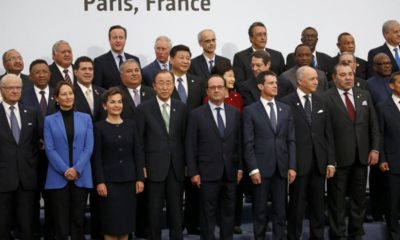The Federal Government through the Ministry of Power has acknowledged the organised Labour request for a reduction in electric tariff.
The Nigeria Labour Congress (NLC) and Trade Union Congress (TUC) had picketed offices of the National Electricity Regulatory Commission (NERC) and Distribution Companies nationwide over the hike in electricity tariff.
The unions had described the upward review, demanding outright cancellation.
Addressing State House correspondents after the Federal Executive Council (FEC) meeting on Tuesday, Minister of Power, Adebayo Adelabu, said labour had the right to protest.
“We cannot stop them from organizing peaceful protest or laying down their demands. Let me make that clear. President Bola Tinubu’s administration is also a listening government.”
“We have heard their demands, we’re going to look at it, we’ll make further engagements and I believe we’re going to reach a peaceful resolution with the labor because no government can succeed without the cooperation, collaboration and partnership with the Labour unions. So we welcome the peaceful protest and I’m happy that it was not a violent protest. They’ve made their positions known and government has taken in their demands and we’re looking at it.
“But one thing that I want to state here is from the statistics of those affected by the hike in tariff, the people on the road yesterday, who embarked on the peaceful protests, more than 95% of them are not affected by the increase in the tariff of electricity. They still enjoy almost 70% government subsidy in the tariff they pay because the average costs of generating, transmitting and distributing electricity is not less than N180 today.
“A lot of them are paying below N60 so they still enjoy government’s subsidy. So when they say we should reverse the recently increased tariff, sincerely it’s not affecting them. That’s one position.
“My appeal again is that they should please not derail or distract our transformation plan for the industry. We have a clearly documented reform roadmap to take us to our desired destination, where we’re going to have reliable, functional, cost-effective and affordable electricity in Nigeria. It cannot be achieved overnight because this is a decay of almost 60 years, which we are trying to correct.”
He said there was the need for sacrifice from everybody, “from the government’s side, from the people’s side, from the private sector side. So we must bear this sacrifice for us to have a permanent gain”.
“I don’t want us to go back to the situation we were in February and March, where we had very low generation. We all felt the impact of this whereby electricity supply was very low and every household, every company, every institution, felt it. From the little reform that we’ve embarked upon since the beginning of April, we have seen the impact that electricity has improved and it can only get better.”



 Naira4 weeks ago
Naira4 weeks ago


 Naira3 weeks ago
Naira3 weeks ago


 News4 weeks ago
News4 weeks ago
 Travel4 weeks ago
Travel4 weeks ago




 Naira4 weeks ago
Naira4 weeks ago


 Jobs3 weeks ago
Jobs3 weeks ago
 Naira3 weeks ago
Naira3 weeks ago


 Travel3 weeks ago
Travel3 weeks ago


















